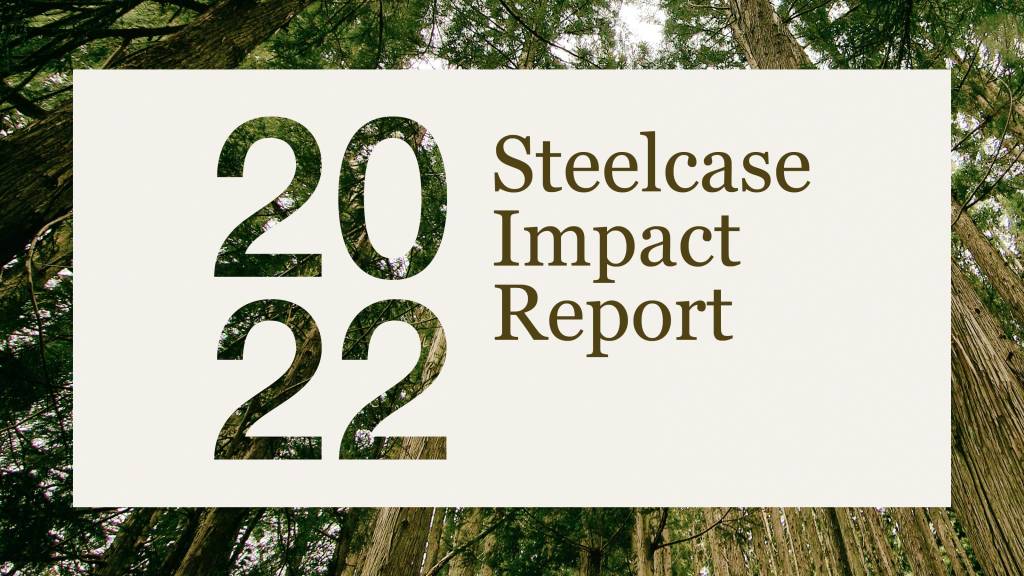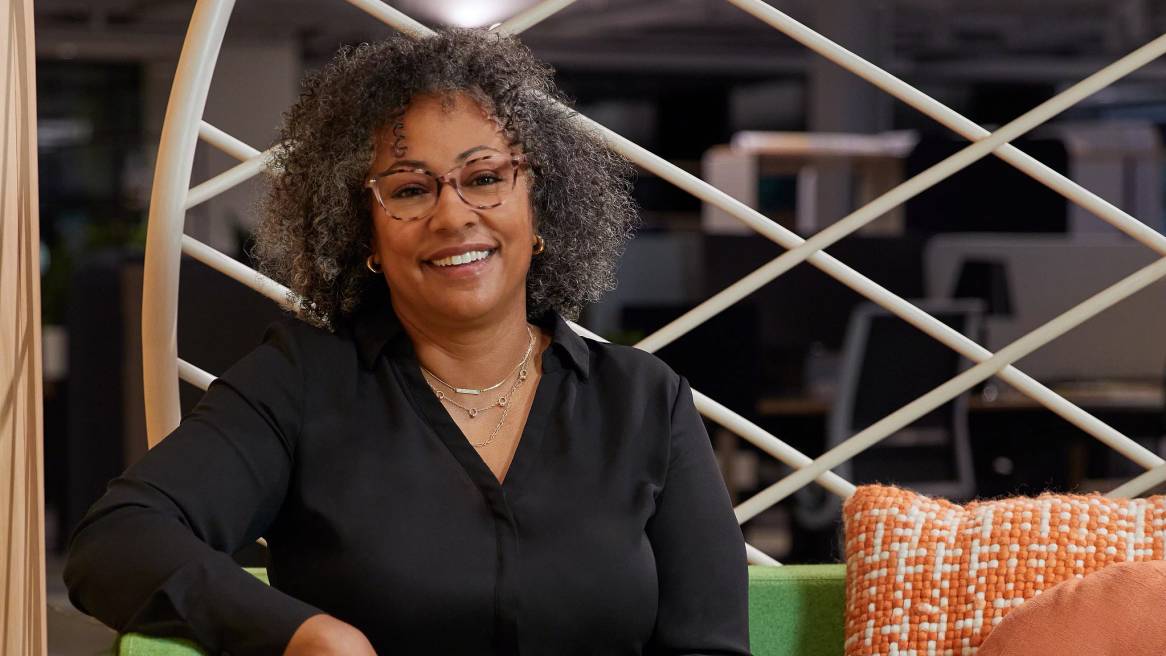How Words Matter
Removing offensive terms like “whitelist” and “blacklist” took a dedicated employee, responsive leaders and a culture of inclusion.
Last fall when Steelcase Corporate Compliance Manager Zoë Wilson filed a help ticket with the Information Technology department for a computer issue, she received a jolt. In the ensuing thread of communications to fix her issue, a particular set of language caught Wilson’s eye. “When I saw the terms ‘whitelist’ and ‘blacklist’ come through, it was arresting, to be honest,” says Wilson. “It got my attention.” That pang of injustice would spark a journey that not only inspired Steelcase to adopt more inclusive language but one that would ripple change to global partners as well.
While Wilson’s reaction to seeing this language in her own workspace was jarring, controversy has enveloped these terms for years. Whitelisting and blacklisting have existed in the cybersecurity and IT realms for decades, but a 2018 Journal of the Medical Library Association article made the argument that such language is inherently racist. That sparked scholastic dialogue on the use of the terms in mainstream communications, and eliminating the terms “whitelisting” and “blacklisting.” In 2020 a number of companies across the U.S. began exploring eliminating the language, including the companies that helped develop the Google Chrome and Microsoft Edge browser software. In 2021, the U.S. government group that pushes for industry standards across the cyber world suggested moving away from the words, which it labeled biased.
‘Whitelisting,’ writes Frank Houghton in the JMLA article, is commonly used in our collective lexicon to refer to options that are “good, respectable and safe” while ‘blacklisting’ commonly denotes “suspicion, shame or ill repute.” Blacklisting is akin to words like ‘black sheep,’ ‘black balled,’ and ‘black market’ – illicit, underground, to be avoided. “The use of such terms does not merely reflect a racist culture, but also serves to legitimize and perpetuate it,” Houghton asserted in his 2018 research.
CULTURE OF INCLUSION + DISTRIBUTED DECISION MAKING
Steelcase has a long legacy of equity rooted in its core values and a commitment to distributed decision making. Its stated objectives are to build diverse teams, ensure equitable opportunities and create a culture of inclusion. The company believes the best people to take on those initiatives are the ones closest to them: its employees. “I commented in the thread of the IT ticket and said, gently, maybe we need to take a timeout on this. Maybe those aren’t the best terms to use,” Zoë Wilson said. “I think we can do better, and I know that being just plain good human beings is important to us.”
It’s within that culture that Wilson said she felt comfortable enough to press the issue with people who have the ability to implement the changes she felt strongly were needed. She brought the issue to key leaders in Steelcase. They agreed with Wilson, and the terms were eventually changed to “Blocklist” and “Allowlist.”
While Wilson says she’s surprised at how much credit she’s received for helping spur those changes, her peers point to Wilson’s call-out as an example of employee-driven decision making. For Wilson, that’s where representation matters. She believes that as she leads as a voice for change, it will influence more people to do the same. “I hope over time I’m able to encourage women and people of color or marginalized people who don’t feel empowered to gain the confidence to speak up when there’s a problem,” says Wilson.
“That’s what I really want to impact; to see more people speak up. I want to show them that this company will be fair. The company will hear them out. It’s not just lip service.”
Zoë WilsonSteelcase Compliance Manager
SMALL CHANGE, BIG IMPACT
While making the decision to change two simple phrases may have come easy to Steelcase leaders, the physical effort to expunge the words from corporate vocabulary wasn’t as straightforward. It took weeks to come up with a solution and make the adjustments – an effort that ended up inspiring change far beyond Steelcase.
“We did the work, met with the right people to ensure it was possible for us to make this change,” says John White, Steelcase senior applications engineer. “But we needed to make sure all internal and external literature was also changed to reflect this effort – so that we wouldn’t have this offensive language lingering anywhere within the processes we control.”

Learn more about how we are helping the world work better by downloading the 2022 Steelcase Impact Report.
Steelcase Corporate and Marketing Communications Leader Brad Grace, who helped devise the strategy for change, agreed a thorough effort was needed to ensure the words were eradicated everywhere.
“With all of our technology, it was no small task to find that term wherever it exists,” Grace says. “There are so many different technologies with their own documentation, but we’re confident now that we’ve changed it across the company.”
But the change didn’t end with Steelcase. During discussions on changing the language at Steelcase, the company engaged several major partners in the process. In one case, a major technology vendor’s executives responded by changing the same language globally across all of its software. A worldwide impact had been sparked by a small group of Steelcase employees.
“That’s huge,” Wilson says of the changes beyond Steelcase. “To think that we had a part in that is phenomenal. We should be proud of that.”
ONGOING COMMITMENT
This is not the first time Steelcase has tackled tough language to create a more inclusive environment for all. Last July, mere months before Wilson called attention to the blacklist and whitelist language, the Steelcase IT department made a decision to change the agile role names of “Scrum Master” to “Agile Delivery Lead,” and “Product Owner” to “Agile Product Lead.” The concern was that the terms ‘master’ and ‘owner’ could be offensive. Steelcase’s Diversity, Equity and Inclusion teams continue to investigate the evolution of other words and phrases within the company that could be seen as insensitive. The initiative to root out such language is part of Steelcase’s DEI commitment to taking action on enhancing inclusiveness.
Zoë Wilson believes that establishing relationships with leaders and with others through the company’s DEI channels is key to effecting change. “It’s never too early to build a relationship. Build it before you need it,” Wilson advises. “And then when there’s a bump in the road, you can feel comfortable reaching out to that person – a person who knows you and who understands that you’re coming from a place of good intentions.”
For resources, connections and to learn more about Steelcase’s commitment to diversity, equity and inclusion


